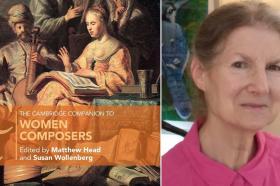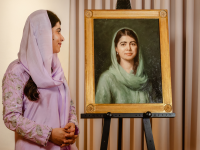
Professor Susan Wollenberg, our Emeritus Fellow in Music, has co-edited a new book that aims to reshape our understanding of women composers. Published by Cambridge University Press, The Cambridge Companion to Women Composers is a collaborative effort between Professor Wollenberg and Matthew Head, Professor of Music at King’s College London. The book explores the contributions of women in the field of music composition, spanning from medieval times to the modern era.
Professor Wollenberg, whose previous work includes studies on keyboard music, the music of Schubert, and the social history of music in Britain, has long been an advocate for the recognition of the impact of women composers. Her research has helped shine a light on the diverse roles women have played in the history of music.
The Cambridge Companion to Women Composers offers a detailed exploration of the critical potential found within a diverse and distinguished repertoire. The book is organised thematically, encompassing a range of genres beyond solely Western traditions, and brings to light the works of female composers from across the globe and through the centuries. The book’s prologue traces the evolution of scholarship on women composers over the past fifty years, investigating the category of 'woman composer' itself.
Each chapter reveals scenes of flourishing creativity, technical innovation, and (often fleeting) recognition. These stories collectively challenge long-held notions of invisibility and neglect, dismissing the clichés that have historically overshadowed women composers and their work. Leading scholars contribute to the book, tracing the shifting ideas about composers and their creative processes.
Professor Wollenberg also contributed two chapters to the book, writing ‘In Search of a Feminist Analysis’ and co-authoring ‘Did Women Have a Classical Style?’ with her co-editor Matthew Head. LMH Fellow in Music, Professor Gascia Ouzounian, an expert in the intersection of sound, space, urbanism, and violence, also contributed a chapter on ‘Vibrations: Women in Sound Art, 1980 – 2000,’ exploring the work of women in the field of sound art during the late 20th century. The chapter 'Women, Pianos, and Virtuosity in the Nineteenth Century' was co-written by former LMH Lecturer in Music Joe Davies, now a Marie Skłodowska-Curie Global Fellow jointly at University California, Irvine (UCI) and Maynooth University.
The Cambridge Companion to Women Composers is not just a tribute to the historical contributions of women in music, but a call to re-evaluate and appreciate the rich tapestry of female creativity that has been, and continues to be, an integral part of our cultural heritage.


